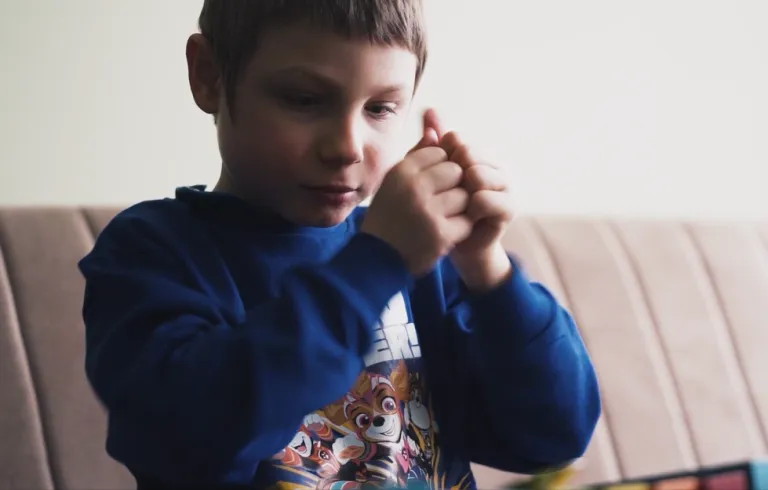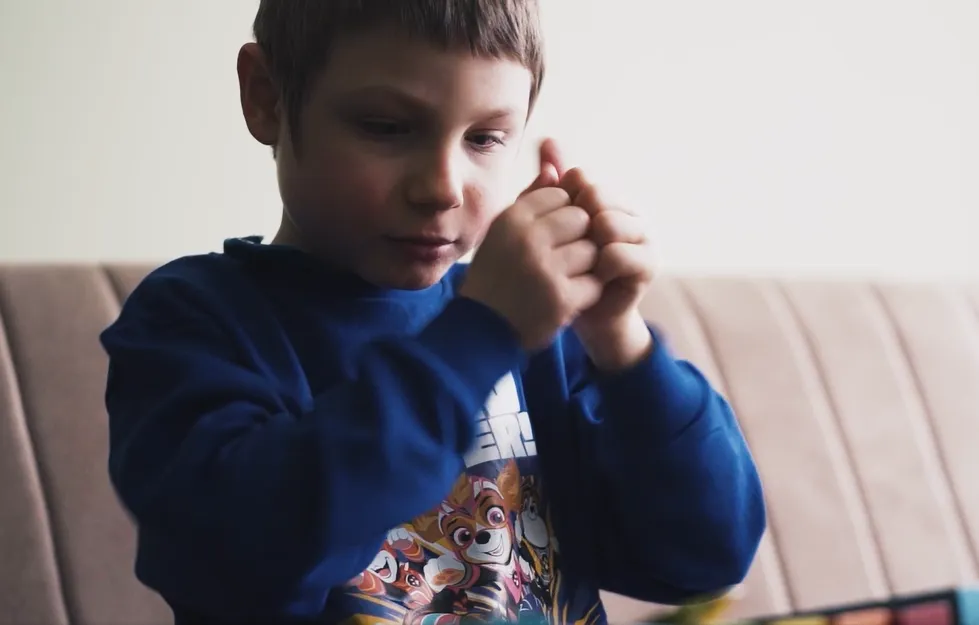Radek struggles with autism spectrum disorder. The diagnosis was made in 2018, and since then Radoslaw has been regularly attending classes to support his development and communication with the environment. The donation of his own cord blood has become an opportunity to improve the quality of his daily life.
What is Radek’s story?
In 2018, Radek, through observation by a psychologist, an educator and a medical interview, was given a diagnosis – autism spectrum disorder. Autism spectrum disorders are neurodevelopmental disorders. Among the most common are disorders of social inteactions, communication related to emotions or disorders of speech and performance of manual activities. Symptoms that characterize the boy’s disorder include: lack of independence requiring daily support, e.g. with eating, problems communicating with the environment and hyperactivity. Radek attends many therapies to support his development, sensory as well as communication and motor skills.
Radek’s mother decided to collect and secure his cord blood before the boy was born.
As a result, Radek had an autologous administration of his own hematopoietic stem cells in 2023.
The qualification and administration took place at the University Children’s Hospital in Lublin.
The aim of the therapy was to support the effectiveness of existing therapies and daily activities.
Effects of stem cell therapy
After being given his own stem cells from umbilical cord blood, Radek began to pronounce the “r” voice. Very spontaneously, instead of las my child says bór,” Radek’s mother recalls.
The boy has learned to clap his hands and his need for closeness with his mother has emerged, which translates into improved overall communication.
In Radek’s case, earlier collection of cord blood cells enabled us to try to improve his clinical condition, to improve his health.
If Radek’s parents had not decided to donate cord blood, it would not have enabled us to carry out this medical procedure, which seems to be very necessary, especially in children for whom previous therapeutic treatment has not been successful .
– mówi dr n. med. Dariusz Boruczkowski, a specialist in pediatric diseases and clinical transplantology.
Rate this article:










